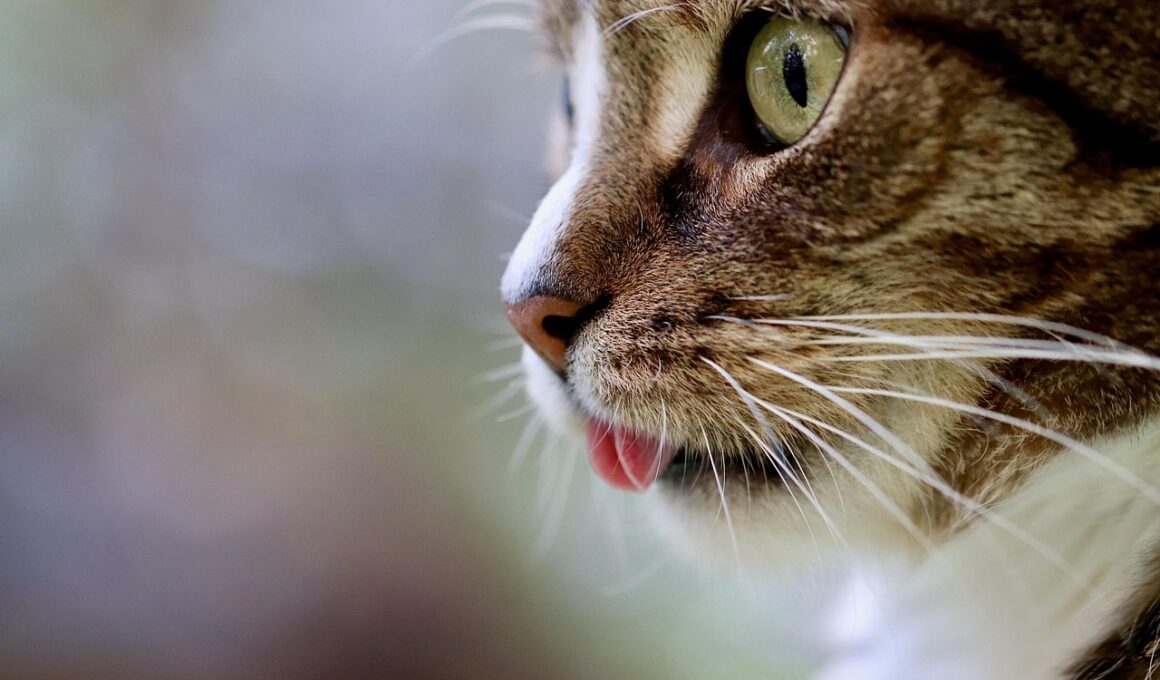Innovations in Oral Parasite Pharmaceuticals for Cats
Understanding the latest innovations in oral medications for parasites in cats is crucial for pet owners and veterinarians alike. Parasites such as roundworms, tapeworms, and hookworms can significantly affect a cat’s health and quality of life. Recent advancements have led to the development of more effective and safer medications that target these harmful organisms. Historically, treatment options were limited and often came with harsh side effects. Today, new formulations promise enhanced efficacy while minimizing adverse reactions. For instance, new oral treatments use novel compounds that interfere specifically with the parasite’s metabolism, avoiding harm to the host cat. Furthermore, the convenience of oral medications provides an owner-friendly alternative to traditional methods, such as injections, which can be stressful for both the cat and the owner. By administering these medications, cat owners can ensure their pets remain healthy and free from parasites. There is an increased focus on tailoring these medications to individual cats based on their specific needs, weight, and lifestyle. These innovations are key in preventing parasite infestations and improving overall feline health. Monitoring and adjustments can lead to the most effective treatment plans available.
The role of technology in improving veterinary pharmaceuticals cannot be understated. The advancements in this area have made it feasible to develop targeted medications that treat parasites effectively without imposing severe side effects. Researchers are utilizing techniques such as molecular biology and biochemistry to discover new active ingredients that may not only kill existing parasites but also prevent future infestations. These new medications can offer a dual approach by combining preventive care with treatment. For example, prolonged-release formulations are being developed, allowing medications to remain effective over an extended period. In turn, this reduces the frequency of administration required, improving compliance among cat owners while providing better health outcomes for pets. Additionally, the integration of data analytics helps veterinarians customize parasite control strategies for individual cats based on their unique health records and environmental conditions. This data-driven approach helps to ensure that each cat receives the most appropriate parasite control regimen tailored to their specific needs. As these technological advancements continue, the future of oral medications for cat parasites looks innovative and optimistic, making it more accessible and efficient for pet owners.
As awareness of feline parasite threats increases, pet owners are increasingly vigilant about parasite control. Regular preventive treatments have become a standard practice among responsible cat owners. Many are also exploring holistic approaches to complement medications. With a combination of conventional pharmaceuticals and dietary supplements, holistic care aims to boost the cat’s immune system, making them less susceptible to parasites. These supplements might include natural ingredients known for their antiparasitic properties, such as pumpkin seeds or diatomaceous earth. Moreover, regular veterinary check-ups are essential for diagnosed upkeep and overall health assessments. Through a proactive approach, veterinarians can provide insights into the efficacy of current medications and recommend integrated treatment plans that incorporate both pharmaceutical and natural solutions. This way, pet owners can feel confident that they are doing everything possible to protect their feline companions from the adverse effects of parasites. Overall, the partnership between a pet owner and a veterinarian can foster an environment promoting optimal health for cats. Preventive measures combined with innovations in oral medications can significantly reduce parasite-related incidents and productive veterinary visits, ensuring happier, healthier cats.
Another remarkable innovation in oral parasite medications for cats is the emphasis on palatability. Many cat owners struggle with giving their pets medicine due to reluctance or refusal to consume it. Pharmaceutical companies have recognized this challenge and have worked diligently to develop flavored formulations that cater to the unique taste preferences of cats. This innovation allows for easier administration and ensures that pets receive their preventative or therapeutic medication without stress. In addition to better taste, advancements in the formulation have led to the development of chewable tablets and flavored liquids that can easily be mixed with food. This ensures feline compliance while also promoting the medication’s effectiveness. Creating pet-friendly medications has brought a new focus to the importance of compliance in treatment regimens. For instance, medications that taste good significantly increase the likelihood of owners being able to provide their cats with the full course of treatment, thus overcoming high rates of missed doses. Longevity and effectiveness in these products ensure that pet owners are more likely to maintain proper parasite prevention over time, enhancing the quality of life for their beloved pets.
In addition to oral medications, education plays a crucial role in effectively managing and controlling feline parasites. Many cat owners lack understanding about the types of parasites that may affect their pets and the ways in which they can prevent infestations. Educational campaigns focusing on parasite prevention, treatment options, and regular veterinary care are essential. By improving access to reliable information, pet owners can become proactive participants in their cats’ health. Resources provided through veterinary clinics or animal welfare organizations can create awareness about the importance of parasite control. Furthermore, online platforms and social media can also deliver vital educational content, addressing common misconceptions and promoting better practices. For instance, guidelines on how to administer oral medications correctly could empower owners, ensuring they are equipped to care for their cats this way. This knowledge will hopefully lead to increased compliance and adherence to prescribed treatment regimens. The objective is to foster a climate of shared responsibility between veterinarians and pet owners, emphasizing the importance of prevention, routine care, and timely interventions when necessary.
Alongside education, there is also a growing emphasis on research and development related to feline parasite control. The veterinary pharmaceutical industry invests significantly in developing more effective, safe, and innovative treatments for cats. Many research initiatives apply the latest scientific findings to discover promising antiparasitic compounds. The focus encompasses understanding the biology of specific parasites and how they interact with feline hosts. Collaborative efforts with universities and research institutions further expedite innovation in treatment options. This collaboration often leads to breakthroughs that could provide better cure rates or more thorough prevention methods against parasites. Moreover, clinical trials become a foundational element in ensuring the safety and efficacy of these new medications. Animal welfare organizations may also assist in raising funds or awareness for studies that target cat parasites. As a result, an expanded range of treatment options that meet the needs of diverse feline lifestyles and health conditions has emerged. With ongoing investments in research, the availability of advanced oral medications will likely increase, making parasite control more efficient and leading to healthier cat populations overall.
Lastly, community awareness about the risks associated with parasites can significantly impact cat ownership dynamics and safety. When pet owners realize the importance of parasite prevention, they often feel encouraged to introduce proactive measures in their care routine. Community outreach programs, such as free or subsidized veterinary clinics for parasite screenings and treatments, can provide valuable services to pet owners. These initiatives can help educate cat owners on proper care and preventive measures regarding parasites. Additionally, unique programs that promote awareness about feral cat populations and their potential parasite outbreaks within communities can foster a new level of responsibility and action for owners. Programs focusing on spaying/neutering and responsible trapping can ensure a decline in parasite outbreaks in local areas. Emphasis on communal education helps owners and caretakers share knowledge on best practices in keeping their pets healthy while learning more about the challenges posed by parasites. Ultimately, responsible actions taken by individuals collectively contribute to the fight against feline parasites on a larger scale, establishing a healthier environment for all feline companions, homeless and pet alike.


